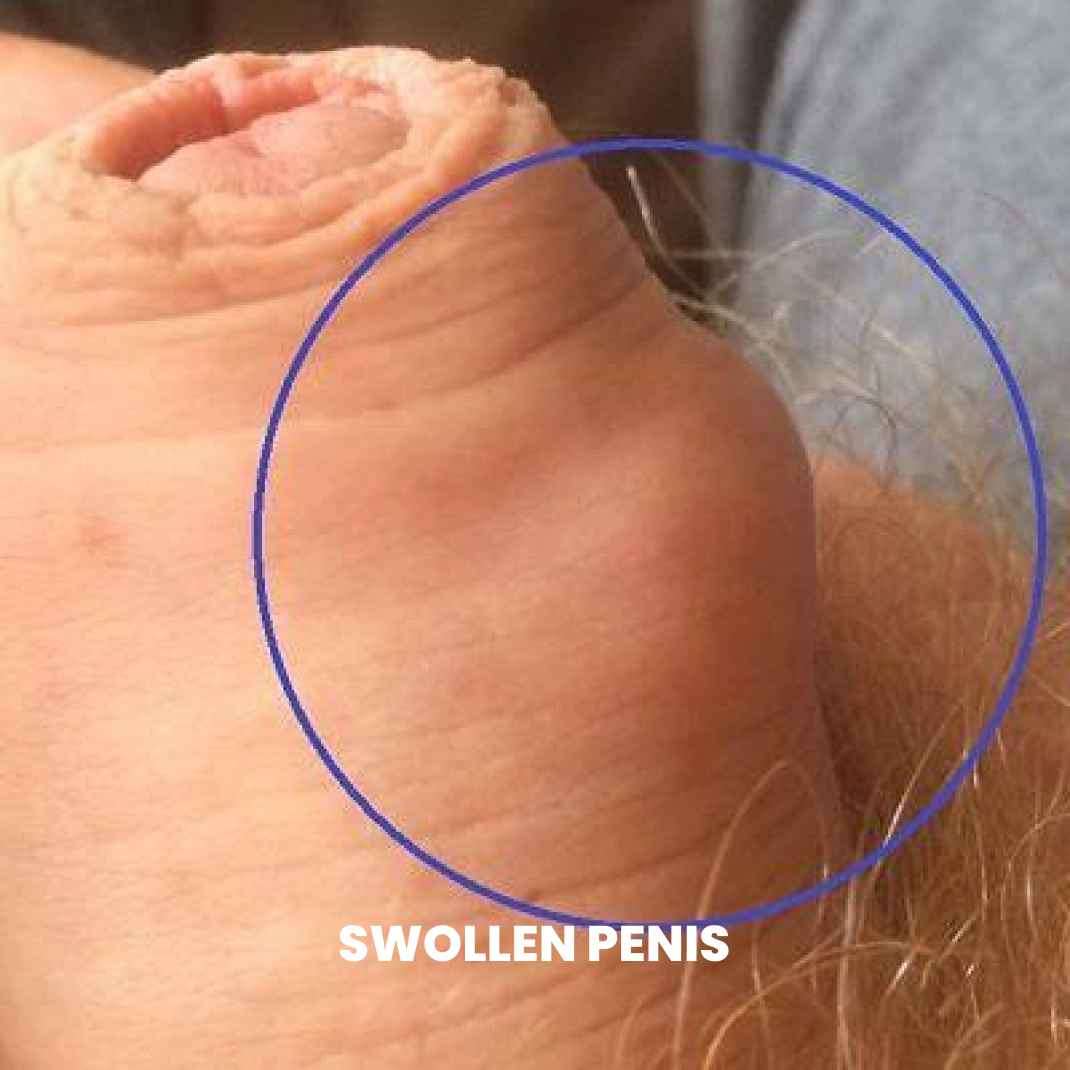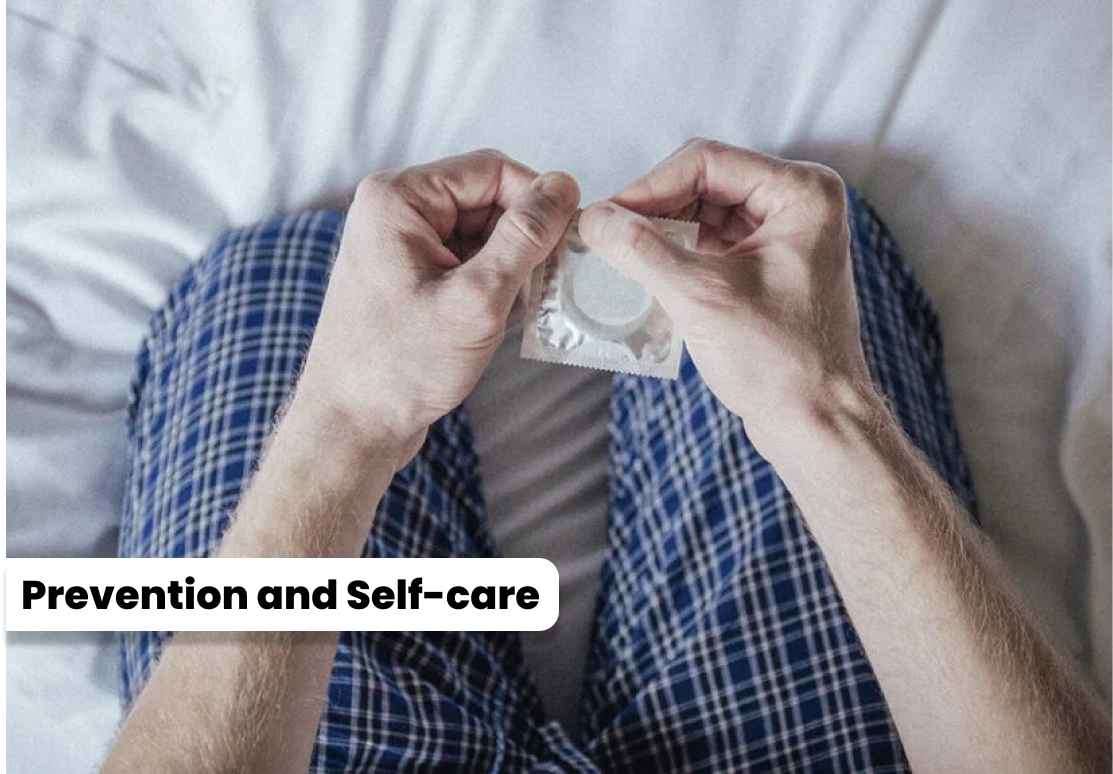A swollen penis can be concerning and may be caused by various factors.
It's important to note that a proper medical evaluation by a healthcare
professional is essential for an accurate diagnosis and appropriate
treatment.
Call us to book an appointment with the best Urology specialist near you.
The human body is susceptible to various conditions and ailments, some of which can be uncomfortable or concerning. One such condition that can cause distress and anxiety is a swollen penis. While it is a sensitive topic for many, it is essential to understand that a swollen penis can be caused by numerous factors, ranging from minor issues to more serious underlying conditions.

The human body is susceptible to various conditions and ailments, some of which can be uncomfortable or concerning. One such condition that can cause distress and anxiety is a swollen penis. While it is a sensitive topic for many, it is essential to understand that a swollen penis can be caused by numerous factors, ranging from minor issues to more serious underlying conditions.
1. Injury or Trauma: A swollen penis can occur due to physical injury or trauma to the genital area, such as blunt force, vigorous sexual activity, or accidents. Swelling may accompany bruising or pain in such cases. 2. Infections: Several infections can lead to penile swelling. These may include sexually transmitted infections (STIs) like gonorrhea, chlamydia, or genital herpes, as well as urinary tract infections (UTIs) or balanitis (inflammation of the foreskin or head of the penis). 3. Allergic Reactions: Some individuals may experience an allergic reaction to certain substances, such as latex condoms, personal care products, or chemicals, leading to swelling of the penis. 4. Phimosis: Phimosis is a condition where the foreskin of the penis is too tight and cannot be pulled back. This can cause swelling, discomfort, and difficulty in urination.
5. Edema: Generalized edema, a condition characterized by fluid retention, can also result in swelling of the penis. It may be associated with underlying medical conditions like heart, liver, or kidney disease.

1. Injury or Trauma: A swollen penis can occur due to physical injury or trauma to the genital area, such as blunt force, vigorous sexual activity, or accidents. Swelling may accompany bruising or pain in such cases.
2. Infections: Several infections can lead to penile swelling. These may include sexually transmitted infections (STIs) like gonorrhea, chlamydia, or genital herpes, as well as urinary tract infections (UTIs) or balanitis (inflammation of the foreskin or head of the penis).
3. Allergic Reactions: Some individuals may experience an allergic reaction to certain substances, such as latex condoms, personal care products, or chemicals, leading to swelling of the penis.
4. Phimosis: Phimosis is a condition where the foreskin of the penis is too tight and cannot be pulled back. This can cause swelling, discomfort, and difficulty in urination.
5. Edema: Generalized edema, a condition characterized by fluid retention, can also result in swelling of the penis. It may be associated with underlying medical conditions like heart, liver, or kidney disease.
The symptoms experienced alongside a swollen penis may vary depending on the underlying cause. Some common symptoms include: 1. Swelling of the penis, either localized or generalized. 2. Pain or discomfort in the affected area. 3. Redness or discoloration. 4. Itching or irritation. 5. Difficulty urinating or an altered urine stream. 6. Discharge from the penis. 7. Fever or other signs of infection.

The symptoms experienced alongside a swollen penis may vary depending on the underlying cause. Some common symptoms include:
1. Swelling of the penis, either localized or generalized.
2. Pain or discomfort in the affected area.
3. Redness or discoloration.
4. Itching or irritation.
5. Difficulty urinating or an altered urine stream.
6. Discharge from the penis.
7. Fever or other signs of infection.
Treatment for a swollen penis depends on the underlying cause and severity of the condition. It is crucial to consult a healthcare professional for an accurate diagnosis and appropriate treatment. Some treatment options may include: 1. Medications: In cases of infections or inflammation, your doctor may prescribe antibiotics, antifungal creams, or topical corticosteroids to reduce swelling and treat the underlying cause. 2. Rest and Elevation: If the swelling is due to injury or trauma, resting and elevating the penis may help reduce swelling and promote healing. 3. Warm Compresses: Applying warm compresses to the affected area can provide relief and help reduce inflammation. 4. Surgical Intervention: In severe cases, such as phimosis or certain injuries, surgical intervention may be necessary. Circumcision or other surgical procedures may be recommended by a urologist to alleviate the swelling.

Treatment for a swollen penis depends on the underlying cause and severity of the condition. It is crucial to consult a healthcare professional for an accurate diagnosis and appropriate treatment. Some treatment options may include:
1. Medications: In cases of infections or inflammation, your doctor may prescribe antibiotics, antifungal creams, or topical corticosteroids to reduce swelling and treat the underlying cause.
2. Rest and Elevation: If the swelling is due to injury or trauma, resting and elevating the penis may help reduce swelling and promote healing.
3. Warm Compresses: Applying warm compresses to the affected area can provide relief and help reduce inflammation.
4. Surgical Intervention: In severe cases, such as phimosis or certain injuries, surgical intervention may be necessary. Circumcision or other surgical procedures may be recommended by a urologist to alleviate the swelling.
While not all cases of swollen penis can be prevented, certain measures can help reduce the risk. Consider the following self-care practices: 1. Practicing safe sex by using condoms and maintaining good sexual hygiene. 2. Avoiding exposure to potential irritants or allergens. 3. Regularly cleaning the genital area and maintaining proper hygiene. 4. Seeking medical attention promptly if you notice any unusual symptoms or changes.

While not all cases of swollen penis can be prevented, certain measures can help reduce the risk. Consider the following self-care practices:
1. Practicing safe sex by using condoms and maintaining good sexual hygiene.
2. Avoiding exposure to potential irritants or allergens.
3. Regularly cleaning the genital area and maintaining proper hygiene.
4. Seeking medical attention promptly if you notice any unusual symptoms or changes.
Swollen penis can be caused by various factors, including infection, inflammation, trauma, or underlying medical conditions. It is important to determine the underlying cause in order to provide appropriate treatment. If you are experiencing a swollen penis, it is recommended to consult with a healthcare professional, such as a urologist, who can evaluate your symptoms and provide a proper diagnosis.
The cost of treatment for a swollen penis can vary depending on the underlying cause and the specific treatment required. The cost may include consultation fees, diagnostic tests (such as urine tests, blood tests, or imaging studies), medications, and any necessary procedures or surgeries. The overall cost can also vary based on the healthcare facility, the expertise of the healthcare professional, and the region or city in which the treatment is sought.
As the cost can vary significantly depending on individual circumstances, it is difficult to provide specific cost estimates for the treatment of a swollen penis. It is best to consult with a healthcare professional who can assess your condition and provide you with accurate cost information based on your specific situation. They will be able to guide you through the necessary diagnostic steps and recommend an appropriate treatment plan, including associated costs.
|
Serial No |
Hospital Name |
City |
Contact Number |
|
1 |
All India Institute of Medical Sciences (AIIMS) |
Multiple Cities |
+91-11-26588500 |
|
2 |
Safdarjung Hospital |
Delhi |
+91-11-2673-0000 |
|
3 |
Post Graduate Institute of Medical Education and Research |
Chandigarh |
+91-172-275-6565 |
|
4 |
Government Medical College and Hospital (GMCH) |
Nagpur |
+91-712-270-1646 |
|
5 |
King George's Medical University (KGMU) |
Lucknow |
+91-522-2257450 |
|
6 |
Madras Medical College |
Chennai |
+91-44-2530-5000 |
|
7 |
Institute of Postgraduate Medical Education and Research |
Kolkata |
+91-33-2204-1000 |
|
8 |
SMS Medical College |
Jaipur |
+91-141-251-8121 |
|
9 |
Government General Hospital |
Vijayawada |
+91-866-257-6000 |
Please Wait..